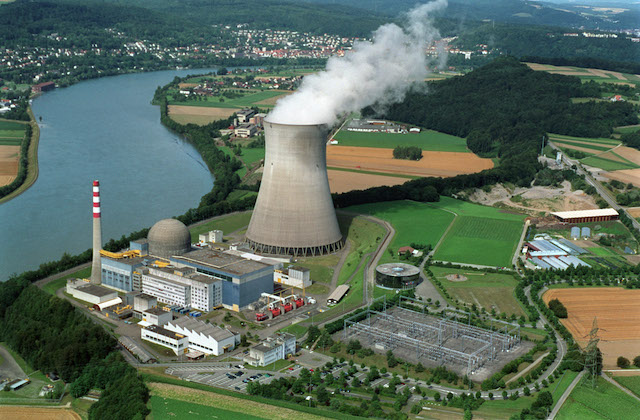Tue, May 16th 2023

(Keystone SDA) Contrary to fears, the winter of 2022-2023 was mild in terms of the energy crisis, but another electricity crisis is already looming. Electricity could be scarce again next winter, says BKW boss Robert Itschner.
According to Itschner, “a difficult situation could arise.” That cannot be ruled out “if next winter gets very cold or if some important power plants in Europe fail,” said the new head of the Bernese energy group in an interview with the AWP news agency.
‘Population will rebel’ Swiss police chief says of energy crisis
Switzerland was certainly “lucky” last winter, “that it was relatively warm and we used less energy,” said Itschner. However, it was already very dry this winter, and how dry the summer will also have an impact on the next cold season. “South of the Alps there is currently a low point in electricity production from hydropower.”

The situation has also eased somewhat with regard to the gas supply – “a very important component of security of supply in Europe”: Europe has apparently been able to tap new gas sources to some extent.
“It may cost more, but it secures access to gas,” said Itschner. He is less confident about the availability of nuclear power in France.
“The problem was basically not solved, but necessary maintenance work and renovations were only delayed,” said Itschner. The power plant park could therefore not be as reliable as one might wish. Itschner therefore advocates continuing the measures that have been decided: the hydropower reserve, the pooling of emergency power generators, the Birr emergency power plant.
“A lot was organized in Switzerland in a short time, but fortunately we haven’t had to use it yet,” he said.

However, the BKW CEO is skeptical about calls for new nuclear power plants in Switzerland. He doubts “that the people in Switzerland really want new nuclear power.”
“When I see how significantly smaller projects are being delayed with objections – like wind turbines with a few towers – I have a hard time imagining how we should get a consensus on new nuclear power plants,” he said.
‘Stop Blackouts’ with nuclear energy, politicians say
In the course of the crisis and the scarcity of electricity, nuclear power was again increasingly discussed in Switzerland. The new Energy Minister Albert Rösti has said he is open to nuclear power. BKW has already shut down its Mühleberg nuclear power plant, but still has nuclear power in its portfolio through its stake in Leibstadt and also has a stake in France.
BKW does not fundamentally have anything against nuclear power, Itschner said. “But at the moment we have a technology ban in Switzerland – that’s just the way it is,” he added.
The Swiss population voted on it in 2017: At that time, the energy law was approved with 58% of the votes. This allows existing nuclear power plants to operate as long as they are safe. However, the law prohibits new construction.

“I agree with Federal Councilor Rösti: We don’t have to have any fundamental discussions about technologies in the next few years, but simply implement plans and realize long-discussed projects.” The focus at the Bernese electricity supplier is now on the expansion of renewable energies – water, solar and wind power, said Itschner.
At the same time, he is pleased with the dynamic that was triggered politically by the crisis. One example is the decree that Parliament is currently discussing. The energy mantle decree is about a rapid, simplified expansion of domestic electricity production from renewable energies.
“It is absolutely essential that the blanket decree is passed and implemented. And that also requires a bit of courage to leave gaps in politics,” said Itschner.
“We don’t have to solve all problems immediately and simply take important steps,” he said, adding even if that is “a somewhat un-Swiss approach.”
This article was reprinted with permission from Keystone SDA.
